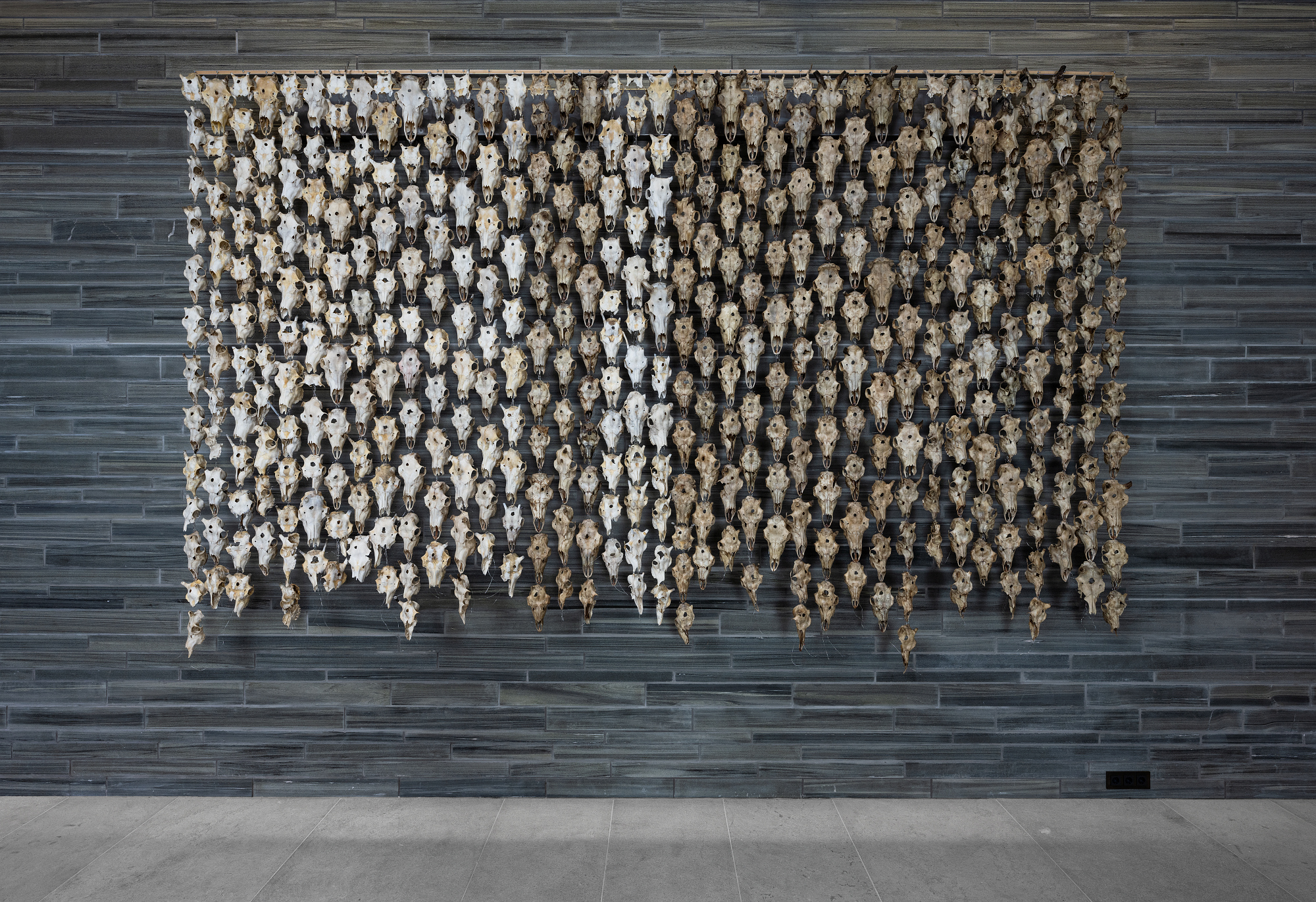Pile o`Sapmi (audio description)
Máret Ánne Sara
Transcription
Description
Pile O’Sapmi
Artist: Maret Anne Sara
Year: 2017
The work is three meters high and four and a half meters long. It is composed of four hundred reindeer skulls, all with bullet holes in the forehead and hooked together with steel wire, so that if touched, it will wave. The skulls are washed and bleached to varying degrees, so that the nuances indicate the pattern in the Sami people's flag. From a distance, it can resemble a rug.
Narrator:
The artwork ‘Pile o’Sapmi’ consists of 400 reindeer skulls arranged to reference the Sámi flag. If you stand close to the artwork, you will see that every skull has a bullet hole in the forehead. The work came into being when the artist’s brother was impacted by the government’s decision to compel the slaughter of reindeer in West Finnmark.
Maret Anne Sara:
He was forced to slaughter his herd down to 75 animals, which would make him bankrupt. By forcing him into bankruptcy, the authorities deprived both my brother and the rest of our family of our culture, our inherited rights, and our traditional territories.
Narrator:
The Reindeer Husbandry Act of 2007 requires limits to be imposed on the number of reindeer that can be kept in each grazing area. Maret Anne Sara’s brother sued the government in his battle for his animals and his rights.
Maret Anne Sara:
When my brother went to court on the morning of the 1st of February 2016, I had stacked 200 blood-stained reindeer skulls outside the courthouse. The case was of such huge importance and so horrendous, while at the same time there was a complete lack of official information and understanding of the situation. It seemed like an impossible battle, my younger brother against the ultimate authority. An invisible injustice and a power imbalance without equal.
Narrator:
The title Pile o’Sápmi refers to the history of North America, where European settlers slaughtered more than 50 million buffalo in the nineteenth century. Pile o’Bones was an expression used by indigenous peoples in North America to describe a place where settlers had stacked up huge piles of buffalo heads that looked like trophy mountains. The work is a call to action and a monument to grief and anger about how colonization continues to occur even here in Norway, as the artist behind the work explains:
Maret Anne Sara:
Our grazing land is expropriated for industrial development. Then the Reindeer Husbandry Act gets amended to justify compulsory slaughter. Then the Supreme Court determines that we don’t know what’s in our own best interests, putting the government in the right. We’re being brought to our knees, both as individuals and as a society.